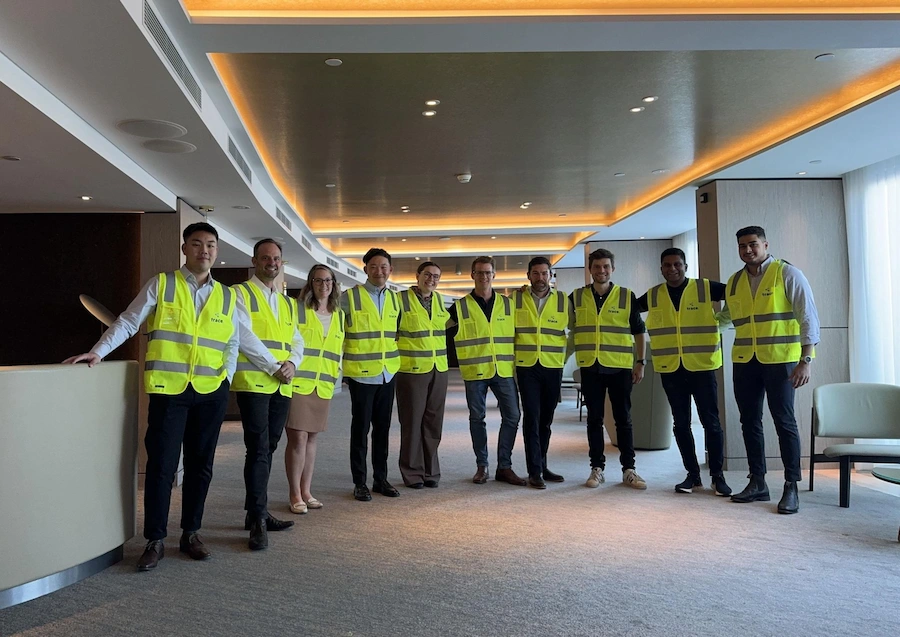Ready to turn insight into action?
We help organisations transform ideas into measurable results with strategies that work in the real world. Let’s talk about how we can solve your most complex supply chain challenges.

The fashion industry, known for its dynamic nature, faces significant challenges in its journey towards sustainability and decarbonisation. With increasing pressure from consumers, regulators, and stakeholders to reduce environmental impact, brands must navigate complex issues to make meaningful progress. Systematic improvements across the fashion value chain are essential for driving decarbonisation, but this requires addressing key challenges with targeted actions.
This article explores six critical sustainability challenges faced by the fashion industry and maps out corresponding actions that can help brands move towards decarbonisation. We will also discuss how Trace Consultants can support fashion companies in developing and implementing these strategies, ensuring that sustainability becomes an integral part of their business model.
Challenge 1: Brands Struggle to Make Sustainability a Core Priority
When economic conditions are challenging, sustainability often takes a backseat as brands focus on immediate financial concerns. However, neglecting sustainability can have long-term consequences, both environmentally and commercially.
Action: Create Commercial Value
Brands need to integrate sustainability into their core business strategy by demonstrating how it creates commercial value. This involves aligning sustainability initiatives with financial goals, such as cost savings from energy efficiency, or revenue growth from sustainable products. By making the business case for sustainability, brands can ensure that it remains a priority even in tough times.
How Trace Consultants Can Help:
Trace Consultants assists fashion brands in identifying and capitalising on the commercial value of sustainability. By developing business cases that align sustainability with financial performance, Trace Consultants helps companies maintain a focus on sustainability, ensuring it is seen as a value-adding component of the business.
Challenge 2: Changes Required Go to the Heart of Business
Sustainability efforts in the fashion industry often require fundamental changes to business operations, particularly in areas such as material sourcing and supply chain management. These changes can be difficult to implement, especially in large, complex organisations.
Action: Focus on Big 2: Material Transition and Tier-2 Supplier Energy Transition
To make meaningful progress, fashion brands should focus on two critical areas: transitioning to sustainable materials and driving energy transition among tier-2 suppliers. These actions address the most significant sources of environmental impact and help lay the foundation for broader sustainability efforts.
How Trace Consultants Can Help:
Trace Consultants provides expertise in managing material transitions and supplier energy transitions. By offering strategic guidance and support, Trace Consultants helps fashion brands implement these changes effectively, ensuring that sustainability efforts have a real impact on their environmental footprint.
Challenge 3: Charting a Decarbonisation Path is Complex
The path to decarbonisation in the fashion industry is fraught with complexity, from navigating regulatory requirements to managing supply chain emissions. Developing a clear and actionable roadmap is essential for success.
Action: Build a Carefully Prioritised, Robust Roadmap
Fashion brands need to develop a decarbonisation roadmap that is carefully prioritised and robust, outlining specific steps to reduce emissions across the value chain. This roadmap should be informed by data, stakeholder input, and a clear understanding of the company’s environmental impact.
How Trace Consultants Can Help:
Trace Consultants assists fashion brands in building comprehensive decarbonisation roadmaps. With expertise in sustainability strategy and implementation, Trace Consultants ensures that these roadmaps are actionable, prioritised, and aligned with the company’s overall goals.
Challenge 4: Fashion Industry Lacks Sufficient Supply Chain Transparency
Transparency is a significant challenge in the fashion industry, particularly within the supply chain. Without clear visibility into supply chain practices, it is difficult for brands to manage and improve their sustainability efforts.
Action: Get Granular on Data
To enhance supply chain transparency, fashion brands must get granular on data, collecting and analysing detailed information about supplier practices, materials, and environmental impact. This data-driven approach enables brands to identify areas for improvement and track progress over time.
How Trace Consultants Can Help:
Trace Consultants provides solutions for improving supply chain transparency through data collection and analysis. By helping brands gather and interpret detailed supply chain data, Trace Consultants ensures that companies can make informed decisions and drive sustainability improvements across their operations.
Challenge 5: Implementation is Consistently Underestimated
Many fashion brands underestimate the challenges involved in implementing sustainability initiatives. From aligning stakeholders to managing complex projects, the execution of sustainability strategies requires careful planning and management.
Action: Boost Execution and Transformation Management
Fashion brands must enhance their execution and transformation management capabilities to successfully implement sustainability initiatives. This includes setting clear goals, establishing strong governance structures, and ensuring that all stakeholders are aligned and committed to the process.
How Trace Consultants Can Help:
Trace Consultants supports fashion brands in boosting their execution and transformation management capabilities. With expertise in project management and change management, Trace Consultants helps companies navigate the complexities of implementing sustainability initiatives, ensuring that they are executed effectively and deliver the desired outcomes.
Challenge 6: Supplier Landscape is Fragmented
The fashion industry’s supplier landscape is highly fragmented, making it challenging to coordinate sustainability efforts across multiple suppliers and geographies. This fragmentation can hinder progress towards decarbonisation.
Action: Make Collaborations Action-Oriented
To address this challenge, fashion brands need to foster action-oriented collaborations with suppliers, focusing on shared sustainability goals and concrete actions. By building strong partnerships and aligning on objectives, brands can drive meaningful change across their supply chains.
How Trace Consultants Can Help:
Trace Consultants facilitates action-oriented collaborations between fashion brands and their suppliers. By helping to establish clear objectives and shared commitments, Trace Consultants ensures that collaborations are focused on achieving tangible sustainability outcomes, driving progress towards decarbonisation.
Navigating the Path to Decarbonisation with Trace Consultants
The fashion industry faces significant challenges in its journey towards sustainability and decarbonisation. By addressing these challenges with targeted actions—such as creating commercial value from sustainability, focusing on material transitions, and boosting execution management—brands can make meaningful progress in reducing their environmental impact.
Trace Consultants provides the expertise and support needed to navigate this complex landscape, helping fashion brands develop and implement strategies that drive decarbonisation while aligning with business goals. Whether your organisation is looking to enhance supply chain transparency, build a robust decarbonisation roadmap, or foster action-oriented collaborations with suppliers, Trace Consultants can help you achieve your sustainability objectives.
For more information on how Trace Consultants can assist your organisation in driving progress toward decarbonisation, reach out to their team of experts today.
Contact us today, trace. your supply chain and procurement consulting partner.
Ready to turn insight into action?
We help organisations transform ideas into measurable results with strategies that work in the real world. Let’s talk about how we can solve your most complex supply chain challenges.









